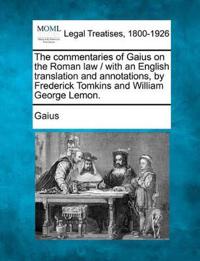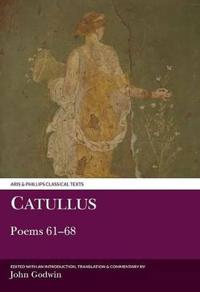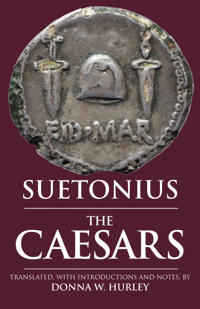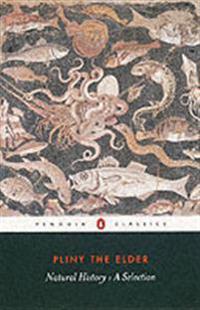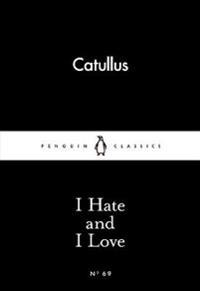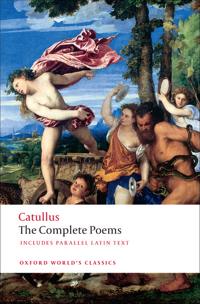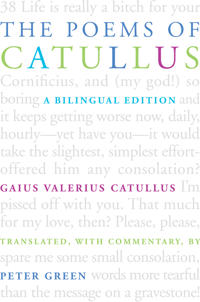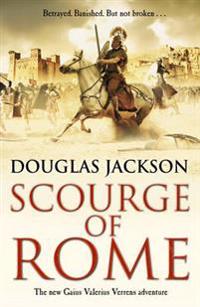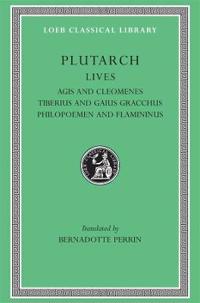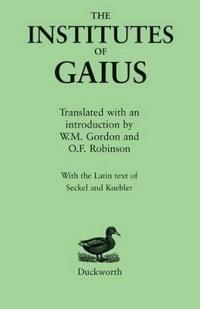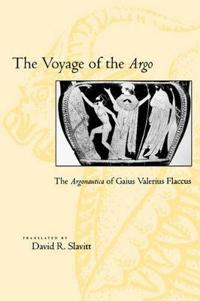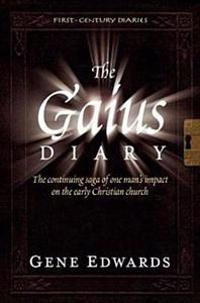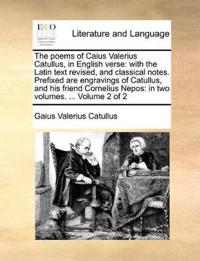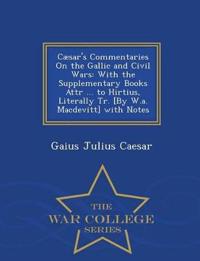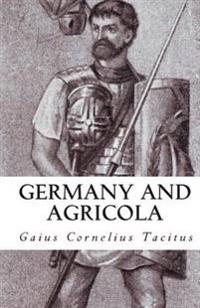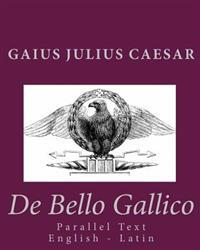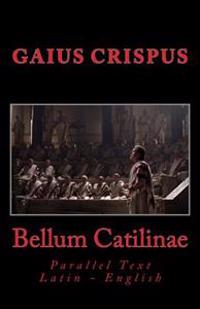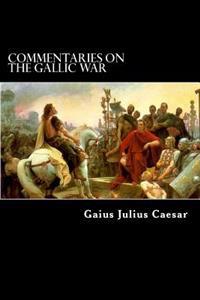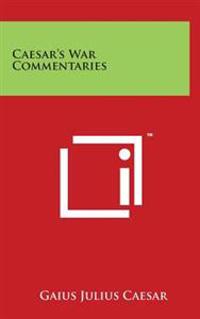The Commentaries of Gaius on the Roman Law / With an English Translation and Annotations, by Frederick Tomkins and William George Lemon. (Häftad)
avGaius
ISBN: 9781240176755 - UTGIVEN: 2010-12Die Naturgeschichte des Gaius Plinius Secundus 1 / 2 (Inbunden)
avGaius d. Ältere Plinius Secundus
ISBN: 9783865391445 - UTGIVEN: 2007-10Die Gliederung des Werkes BUCH 1: Widmung, Inhaltsangabe, Quellennachweis BUCH 2: Astronomie, Kosmogonie BUCH 3-6: Geographie und Ethnologie BUCH 7: Anthropologie und Physiologie BUCH 8-11: Zoologie BUCH 12-19: Botanik BUCH 20-32: Pharmakologie BUCH 33-37: Mineralogie, Metallurgie, Lithurgie Vollst�[...]
Catullus (Pocket)
avGaius Valerius Catullus, John (EDT) Godwin, Gaius Valerius Catullus
ISBN: 9780856686719 - UTGIVEN: 1995-06The Caesars (Inbunden)
avGaius Suetonius Tranquillus, Donna W. Hurley, Gaius Suetonius Tranquillus
ISBN: 9781603843140 - UTGIVEN: 201103Natural History (Storpocket)
avPliny the Elder, Gaius Plinius Secundus
ISBN: 9780140444131 - UTGIVEN: 199108Pliny's "Natural History" is an astonishingly ambitious work that ranges from astronomy to art and from geography to zoology. Mingling acute observation with often wild speculation, it offers a fascinating view of the world as it was understood in the first century AD, whether describing the danger [...]
I Hate and I Love (Häftad)
avGaius Valerius Catullus
ISBN: 9780141398594 - UTGIVEN: 2015-02Dazzling modern lyrical poems from Catullus - by turns smutty, abusive, romantic and deeply moving. Introducing Little Black Classics: 80 books for Penguin's 80th birthday. Little Black Classics celebrate the huge range and diversity of Penguin Classics, with books from around the world and across m[...]
The Poems of Catullus (Häftad)
avGaius Valerius Catullus
ISBN: 9780199537570 - UTGIVEN: 200810Of all the classical poets Gaius Valerius Catullus (c. 84-54 BC) is the most accessible to the modern reader. Presented alongside the original Latin text, this new translation reflects Catullus' mastery of poetic forms as diverse as the lyric, the inventive epigram, and the romantic legend, and show[...]
The Poems of Catullus (Häftad)
avGaius Valerius Catullus
ISBN: 9780520253865 - UTGIVEN: 200508Catullus, who lived during some of the most interesting and tumultuous years of the late Roman Republic, spent his short but intense life (?84-54 B.C.E.) in high Roman society, rubbing shoulders with various cultural and political luminaries, including Caesar, Cicero, and Pompey. Catullus' poetry is[...]
Scourge of Rome: Gaius Valerius Verrens 6 (häftad)
ISBN: 9780593070598 - UTGIVEN: 2015-09For fans of Simon Scarrow and Ben Kane, the spectacular new novel in Douglas Jackson's epic series sees Gaius Valerius Verrens banished from Rome only to be caught up in one of the most savage uprisings the Roman Empire had witnessed: The Judaean rebellion and the siege of Jerusalem.
70 AD. Disgr[...]Lives, Volume X: Agis and Cleomenes. Tiberius and Gaius Gracchus. Philopoemen and Flamininus
ISBN: 9780674991132 - UTGIVEN: 1921-01Plutarch (Plutarchus), ca. 45120 CE, was born at Chaeronea in Boeotia in central Greece, studied philosophy at Athens, and, after coming to Rome as a teacher in philosophy, was given consular rank by the emperor Trajan and a procuratorship in Greece by Hadrian. He was married and the father of one d[...]
Lives of the Caesars, Volume I: Julius. Augustus. Tiberius. Gaius. Caligula (Inbunden)
avSuetonius, Suetonius Tranquillus, C
ISBN: 9780674995703Suetonius (C. Suetonius Tranquillus, born ca. 70 CE), son of a military tribune, was at first an advocate and a teacher of rhetoric, but later became the emperor Hadrian's private secretary, 119-121. He dedicated to C. Septicius Clarus, prefect of the praetorian guard, his "Lives of the Caesars." Af[...]
The Institutes of Gaius
ISBN: 9780715625057 - UTGIVEN: 2015-03Gaius was a Roman jurist of the 2nd century AD. His "Institutes" is an important legal textbook covering all the elements of Roman law. This volume contains a useful Introduction, English translation and the Latin text of Seckel and Kuebler. Its aim is to make the "Institutes," one of the seminal wo[...]
Voyage of the Argo (Pocket)
avDavid R. (TRN) Slavitt, Gaius Valerius Flaccus, David R. (TRN) Slavitt
ISBN: 9780801861789 - UTGIVEN: 1999-10The story of Jason and the Argonauts and their quest for the Golden Fleece is one of the oldest and most familiar tales in classical literature. Apollonius of Rhodes wrote the best-known version, in Greek, in the third century B.C.E. The Latin poet Gaius Valerius Flaccus began his own interpretation[...]
The Gaius Diary (Häftad)
avGene Edwards
ISBN: 9780979751509 - UTGIVEN: 201205In this gripping narrative we hear of many historical events that cause perilous times for the fledgling church. Gaius tells of the fall of Jerusalem and the martyrdom of Christians torn apart by wild animals in the Colosseum and of others perishing as human torches in Nero's garden. Near the end of[...]
Caesar's Commentaries. the Complete Gallic Wars. Revised.: Revised Edition (Häftad)
avJulius Gaius Caesar, Giles Lauren
ISBN: 9780985081119 - UTGIVEN: 2012-04de Bello Gallico: Parallel Text English - Latin (Häftad)
avGaius Julius Caesar
ISBN: 9781453848999 - UTGIVEN: 2010-11Bellum Catilinae: Parallel Text Latin - English (Häftad)
avGaius Sallustius Crispus, Rev John Selby Watson
ISBN: 9781466388017 - UTGIVEN: 2011-09Commentaries on the Gallic War: And Other Commentaries of Gaius Julius Caesar (häftad)
ISBN: 9781480279049 - UTGIVEN: 2012-11

